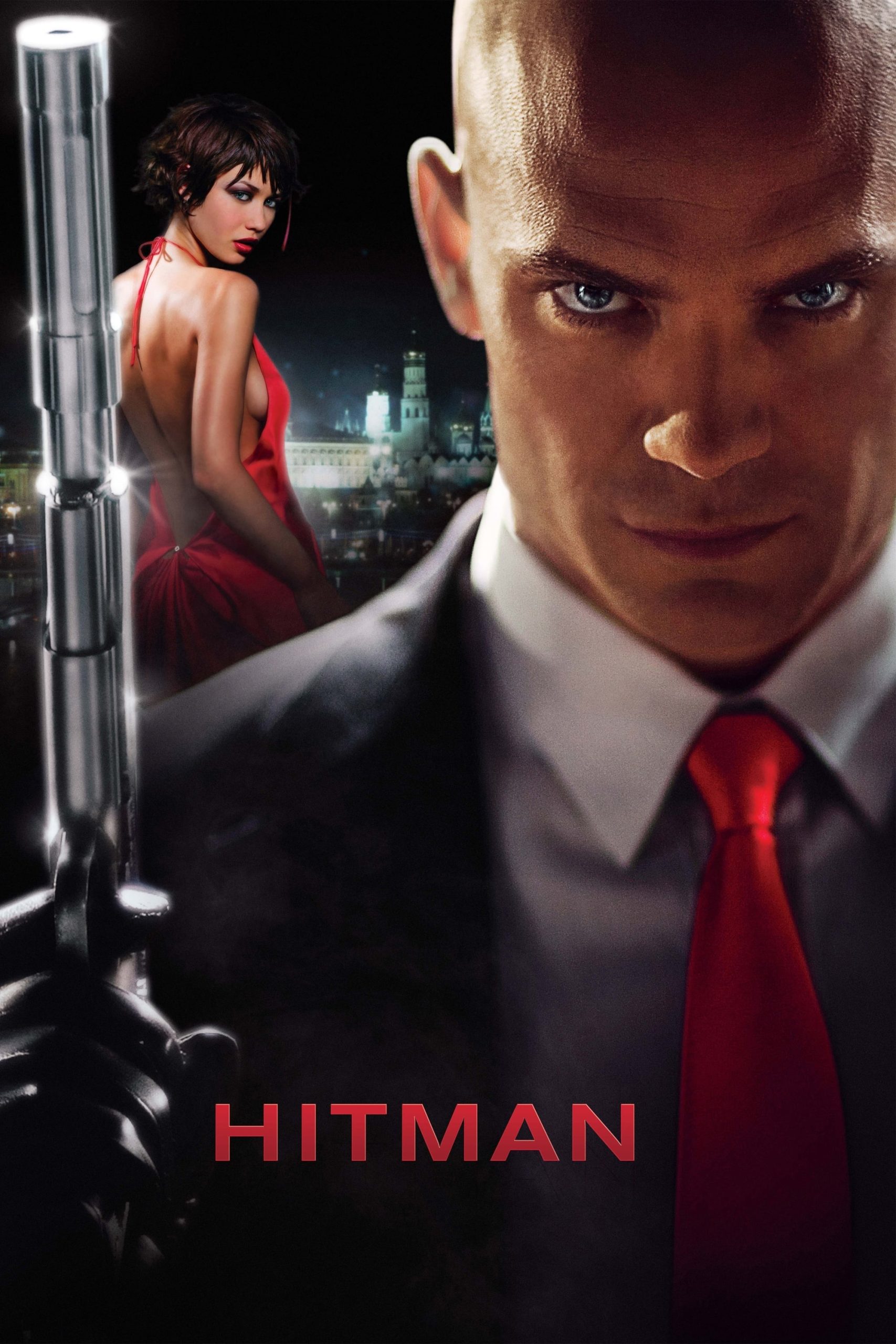
A genetically engineered assassin with deadly aim, known only as "Agent 47" eliminates strategic targets for a top-secret organization. But when he's double-crossed, the hunter becomes the prey as 47 finds himself in a life-or-death game of international intrigue.
26 Nov Hitman (2007)
Clones
I found this solid and competent. The curious thing is that what it did well, it did not because of what it is, but because it did not stick closely to the world of the video game. This is also why the fan base rejected it.
Apparently, the agent in the game is one of the 47th generation of clones, where the movie has him as the best of a collection of specially trained orphans. Instead of a name, he simply has the number 47.
I also liked the mashup, conventional as it is: Russian mafia, secret supercapable murder enterprise, worldwide conspiracy of priests. Its the spice of the priests that matters, after the Dan Brown conspiracy to make it seem ridiculous and taking the style out of it. It is easier somehow to believe a cabal lead by a Moscow Patriarch instead of the inept Rome.
The girl does what the girl is supposed to do: claim that she is sexually exploited, and then proceed to be exploited by us in much the same way. The assassin does what he is supposed to and does it well: show us unexpected ways that he can manipulate the world, anticipating coincidences and odd subplots. Our designated watcher, the typical American detective, also does his job: watching at a distance.
Why this film deserves a comment and others I see do not, is the way it ends. The form here is reverse noir. In noir, we have a hero, an everyman, who is manipulated by the world of the viewer. He is subject to cosmic coincidences that come not from any natural unfolding, but from our need to have a structured narrative. The watcher unconsciously manipulates the character.
In reverse noir, the character somehow can control the world, so that minor coincidences are anticipated, even controlled by a plan he has that we do not know. We, the viewer, are placed in the thing to be befuddled as we end up as the manipulated soul. I am not sure when this reversed form first appeared; I am hoping a reader can advise. But the form is common enough now to have some endemic problems, the most challenging of which is how to end the film.
This film does that admirably, and it can be said that all the automatic stuff in the middle of the film is arranged to set up this satisfactory ending. The film starts with the beginning of that ending, with the remainder an implicit flashback (meaning only that the story is recalled and not repeated aloud). The ending is set up emotionally as our hit man is incapable of controlling the world so far as a mate, a family. We see him tortured about this. Yes, it is a juvenile portrayal of such an emptiness, but we get it.
So the only way he can get the pleasure of a family is the same way we get the pleasure of killing scads of bad guys: by watching. So while for 90 minutes our detective has been our surrogate watcher, giving us expected thrills and surprises, we reverse once again at the end: now the hit man is the watcher of love and family. We know he will never approach ‘the girl’ or the detective again, but that he will watch, which we see him doing through the only instrument available, a rifle sight.
This is good writing my friends, where the screenwriter understands the form well enough to manipulate it and us. He was able to give the fanboys something; he was able to give the studio bosses their key elements (boobs, explosions, creation myth, societal anchoring); and yet he was able to give himself a cleverly well ended story. Of how many films can you say that? I see he is working on the next Bruce Willis ‘Die Hard.’ Bet it is well written too.
Posted in 2011
Ted’s Evaluation — 2 of 3: Has some interesting elements.


No Comments